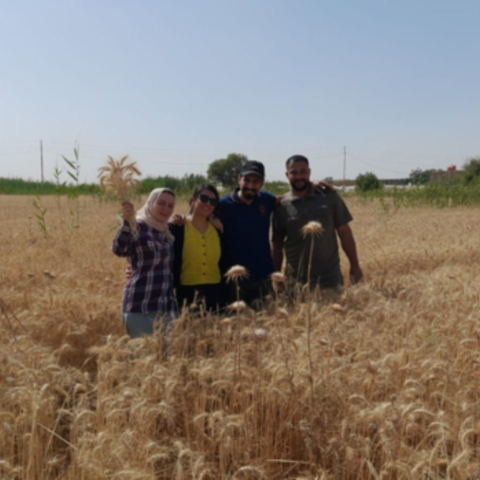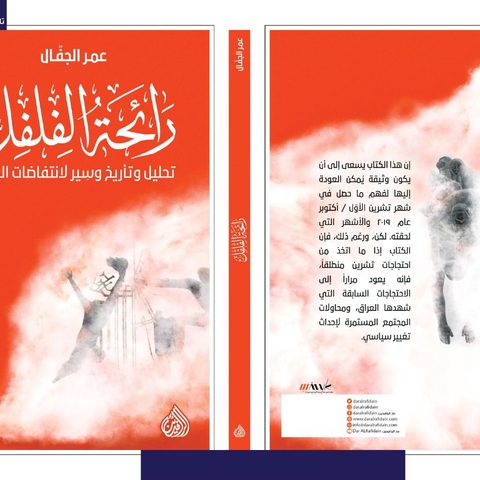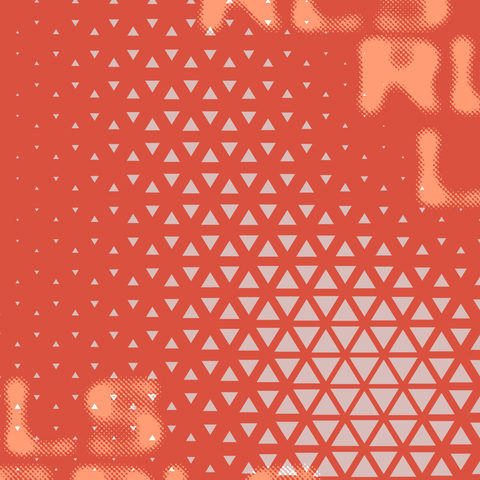Food Sovereignty Network Meeting in Iraqi Kurdistan
Date: 22nd of September to 2nd of October 2022
Aim of Network Meeting:
In 2019, Guez u Nakhl- the network for food sovereignty in Iraq and Kurdistan was established. It consist of three different groups in Dohuk, Sulaymaniya and Baghdad whose aim it is to support food sovereignty in Iraq and Kurdistan. To this end, they were supported and trained by the agro-ecological farm collective “Buzuruna Juzuruna” in Lebanon. This meeting was the first meeting in Iraqi Kurdistan where Guez u Nakhl is supported in their own context and land, in Iraqi Kurdistan. The main goal was to have a practical exchange on the challenges and practices in the field of agro-ecology in Iraq. Specifically, the network meeting offered
- consultation on the first garden that had been created according to agro-ecological standards
- Disseminated the newly gained knowledge on agro-ecological practices throughout the village community with a hands-on example
- Support the networking of farmers inside Iraq around examples and practices of agro-ecological garden
The meeting also served as an exchange between the different participants, that is, peasants from Dohuk, seed keepers from Sulaimaniya, farmers and labor activists from Baghdad, members of the Lebanese-Syrian collective Buzurna-Juzurna and members of the Bassateen collective as well as the AbL (Arbeitsgemeinschaft bäuerliche Landwirtschaft, engl Working group on rural agriculture) from Germany. The diversity of participants reflected the transnational dimension of food sovereignty. The meeting builds on training workshops that have taken place in Lebanon.
Program:
The first days of the network meeting were spent in Amediye, Dohuk, specifically in the village Pirozana where the first garden according to agro-ecological standards has been created. Here trainings took place on Integrated Pest Management (IPM), Fertility Management, Seed Selection and Extraction, the production of Bio pesticides as well as the marketing and design of the harvest/products. At the same time, this was coupled with theoretical and historical input about agriculture in Iraqi Kurdistan, followed by discussions on the challenges of Iraqi agriculture lying ahead of us. In Sulaymanyia, we visited the second garden that has been created, where mainly the members of Buzuruna Juzuruna offered consultation for the garden and we spent time discussing the future needs of the network as well as the program of the Baghdad meeting. Among the important future needs of the network is the creation of more awareness on agro-ecology in Iraq and Kurdistan, to attract farmers and environmental activists in the south of Iraq, more information on pesticides use and the availability of heirloom seeds. At the same time, specific tools are needed for seed collection and seed conservation as well as creating farmer led seed systems. This will be taken into consideration in the planning of the 2nd network meeting in Baghdad, Iraqi Kurdistan.
Background Information:
Iraq, Lebanon and Syria have witnessed massive changes in their food production systems in the last decades and years. Although a food producer with large exports into the region, Syria had transformed its peasantry towards producers for the state-run marker within the “green revolution” of Hafiz Al-Assad thereby turning independent peasants into state reliant receivers. With the Syrian uprising, self-organization also in the realm of farmers and gardeners developed. Similarly, Iraq and Lebanon witness a big dependence of farmers caused in Iraq especially – but not only- through new regulations on seeds and agriculture following the US invasion in 2003. With the 2019 uprising in Iraq, voices to boycott food imports from Iran and partially Turkey were voiced and the topic of local production raised. In addition, initiatives dealing with the loss of indigenous seeds developed. Also in Lebanon, following the 2015 and 2019 uprising, projects tackling the garbage crises through composting projects and collectives of food production developing alternatives to the mode of living of the cities like Beirut, started to develop. Agro ecology is one field that seems to give hope to these different initiatives in a transnational manner. However, there has not been any space yet to really practically exchange on the current situation and strategies in the region.
The level of organizing and use of agro-ecological practices differs immensely between Iraq and Lebanon. Even though, they are still a minority, in Lebanon there is an organized body of farm collectives that use agro-ecological practices for food and seed production as a way to resist the current status quo. The exchange meeting in Iraqi Kurdistan was therefore a place for discussion of different food regimes in the region and practical workshops on seed production, seed selection and extraction, marketing and selling of products of community supported agriculture etc.
Date: 22nd of September to 2nd of October 2022
Aim of Network Meeting:
In 2019, Guez u Nakhl- the network for food sovereignty in Iraq and Kurdistan was established. It consist of three different groups in Dohuk, Sulaymaniya and Baghdad whose aim it is to support food sovereignty in Iraq and Kurdistan. To this end, they were supported and trained by the agro-ecological farm collective “Buzuruna Juzuruna” in Lebanon. This meeting was the first meeting in Iraqi Kurdistan where Guez u Nakhl is supported in their own context and land, in Iraqi Kurdistan. The main goal was to have a practical exchange on the challenges and practices in the field of agro-ecology in Iraq. Specifically, the network meeting offered
- consultation on the first garden that had been created according to agro-ecological standards
- Disseminated the newly gained knowledge on agro-ecological practices throughout the village community with a hands-on example
- Support the networking of farmers inside Iraq around examples and practices of agro-ecological garden
The meeting also served as an exchange between the different participants, that is, peasants from Dohuk, seed keepers from Sulaimaniya, farmers and labor activists from Baghdad, members of the Lebanese-Syrian collective Buzurna-Juzurna and members of the Bassateen collective as well as the AbL (Arbeitsgemeinschaft bäuerliche Landwirtschaft, engl Working group on rural agriculture) from Germany. The diversity of participants reflected the transnational dimension of food sovereignty. The meeting builds on training workshops that have taken place in Lebanon.
Program:
The first days of the network meeting were spent in Amediye, Dohuk, specifically in the village Pirozana where the first garden according to agro-ecological standards has been created. Here trainings took place on Integrated Pest Management (IPM), Fertility Management, Seed Selection and Extraction, the production of Bio pesticides as well as the marketing and design of the harvest/products. At the same time, this was coupled with theoretical and historical input about agriculture in Iraqi Kurdistan, followed by discussions on the challenges of Iraqi agriculture lying ahead of us. In Sulaymanyia, we visited the second garden that has been created, where mainly the members of Buzuruna Juzuruna offered consultation for the garden and we spent time discussing the future needs of the network as well as the program of the Baghdad meeting. Among the important future needs of the network is the creation of more awareness on agro-ecology in Iraq and Kurdistan, to attract farmers and environmental activists in the south of Iraq, more information on pesticides use and the availability of heirloom seeds. At the same time, specific tools are needed for seed collection and seed conservation as well as creating farmer led seed systems. This will be taken into consideration in the planning of the 2nd network meeting in Baghdad, Iraqi Kurdistan.
Background Information:
Iraq, Lebanon and Syria have witnessed massive changes in their food production systems in the last decades and years. Although a food producer with large exports into the region, Syria had transformed its peasantry towards producers for the state-run marker within the “green revolution” of Hafiz Al-Assad thereby turning independent peasants into state reliant receivers. With the Syrian uprising, self-organization also in the realm of farmers and gardeners developed. Similarly, Iraq and Lebanon witness a big dependence of farmers caused in Iraq especially – but not only- through new regulations on seeds and agriculture following the US invasion in 2003. With the 2019 uprising in Iraq, voices to boycott food imports from Iran and partially Turkey were voiced and the topic of local production raised. In addition, initiatives dealing with the loss of indigenous seeds developed. Also in Lebanon, following the 2015 and 2019 uprising, projects tackling the garbage crises through composting projects and collectives of food production developing alternatives to the mode of living of the cities like Beirut, started to develop. Agro ecology is one field that seems to give hope to these different initiatives in a transnational manner. However, there has not been any space yet to really practically exchange on the current situation and strategies in the region.
The level of organizing and use of agro-ecological practices differs immensely between Iraq and Lebanon. Even though, they are still a minority, in Lebanon there is an organized body of farm collectives that use agro-ecological practices for food and seed production as a way to resist the current status quo. The exchange meeting in Iraqi Kurdistan was therefore a place for discussion of different food regimes in the region and practical workshops on seed production, seed selection and extraction, marketing and selling of products of community supported agriculture etc.



